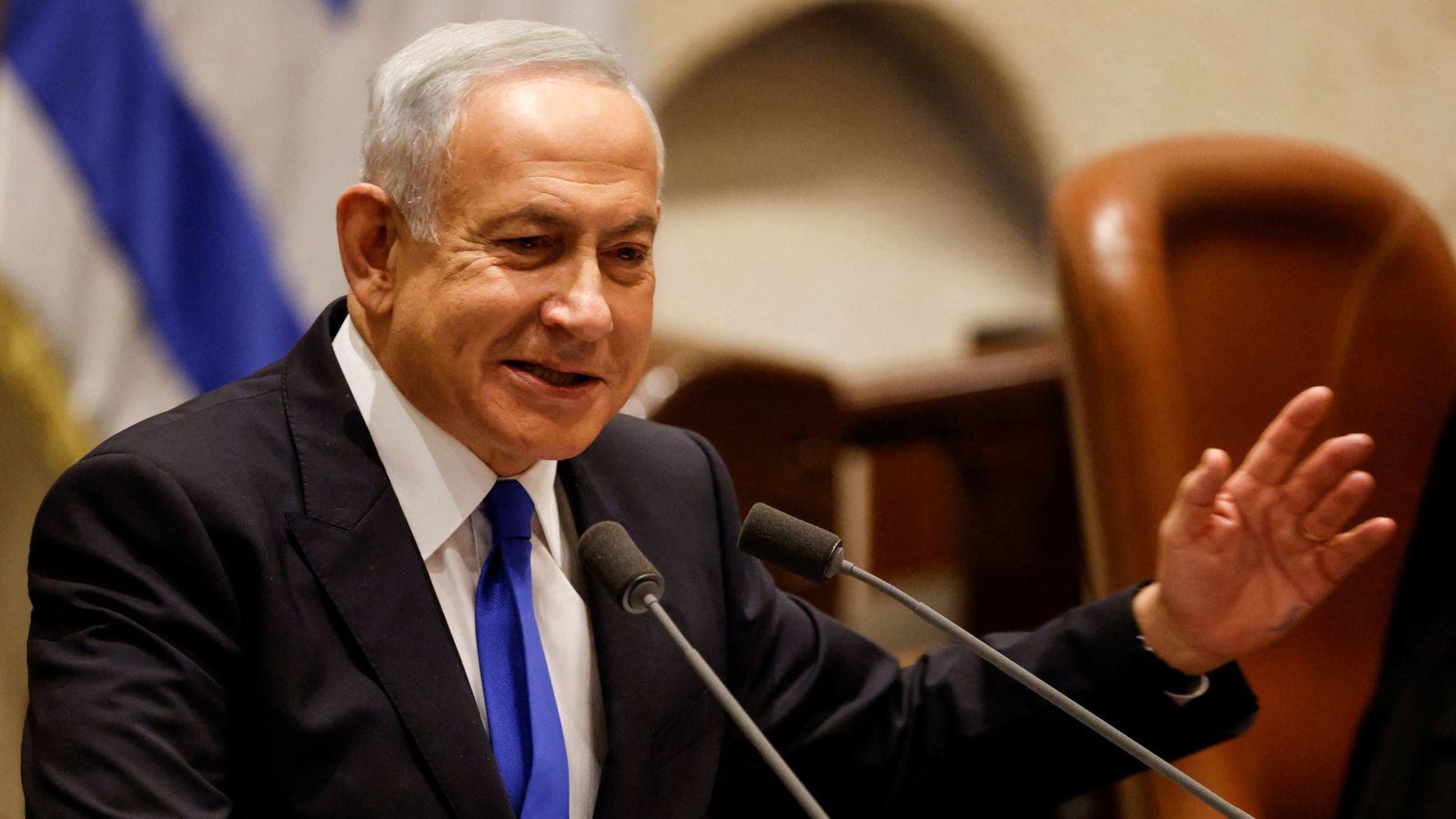Benjamin Netanyahu will be sworn in as Prime Minister of Israel for a record sixth time later today, marking an extraordinary comeback for the veteran politician.
Mr Netanyahu, whose coalition won a clear majority in November elections, will head up a highly controversial right-wing government.
Cabinet posts for Itamar Ben-Gvir, who has previously been convicted of incitement to racism, and Bezalel Smotrich, leader of the Religious Zionism party, have caused considerable unease.
Mr Smotrich, a vocal supporter of illegal Israeli settlements in The West Bank, will become finance minister and take on a post in the Defence Ministry that will give him sweeping powers over the occupied territories.
Mr Ben-Gvir, who has repeatedly threatened and goaded Palestinians in east Jerusalem, will be national security minister, giving him control over the Israeli Police Force.
Earlier in the year, during protests in the Arab neighbourhood of Sheikh Jarrah, he was overheard urging police to shoot at Palestinian demonstrators; he is understood to want to loosen rules governing use of live fire.
Such are the concerns, within Israel and internationally, that the Israeli President Isaac Herzog called Mr Ben-Gvir to a meeting in his office yesterday, a highly unusual move.
Benjamin Netanyahu announces he has formed new coalition to govern Israel
Benjamin Netanyahu set to form government after Israeli PM concedes defeat in election
Why a Benjamin Netanyahu election win could be a ‘dark day’ for Israel
“In their meeting, President Herzog expressed deep concern and presented to Mr Ben-Gvir voices from large sections of the nation and the Jewish world concerned about the incoming government,” a statement said.
Senior IDF officers have also spoken out publicly, and in private, over their fears to change the security status in The West Bank. Outgoing Defence Minister Benny Gantz said it was “completely predictable” that stability in the area would be affected.
And, already, foreign governments and organisations have begun to make their discomfort clear.
The European Union has cancelled a proposed cooperation agreement between Europol and the Israeli police, believed to be a result of fears it would allow Mr Ben-Gvir access to sensitive intelligence, and in protest at plans to change the status for illegal settlers in the West Bank.
The White House has been cautious not to openly criticise or pass judgement on the new government but has been noticeably critical of Israeli behaviour in the West Bank since November’s elections.
Read more:
Why a Benjamin Netanyahu election win could be a ‘dark day’ for Israel
And the United Nations is increasingly concerned that a change in status for illegal Israeli settlers will bring about an effective annexation of West Bank land.
Mr Netanyahu, who has burned many bridges over his long career and alienated political allies, must head this fragile coalition.
He, himself, is still on trial for charges of bribery and fraud but is seeking to amend parliamentary legislation to have the case thrown out.
Senior Israeli legal officers have warned this could permanently undermine the judiciary and democracy.










